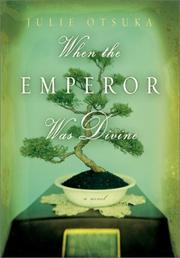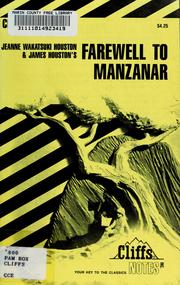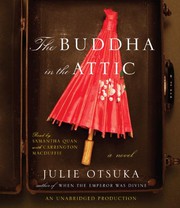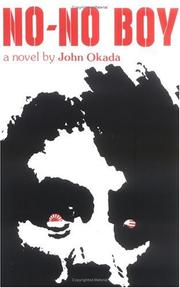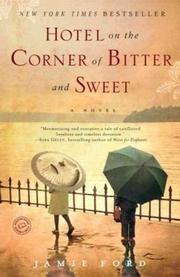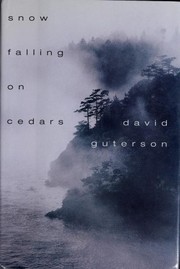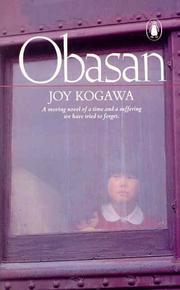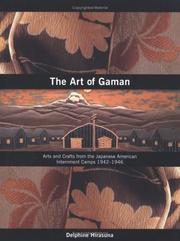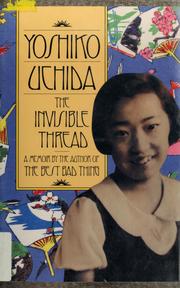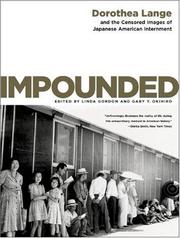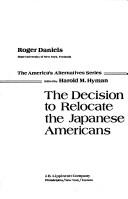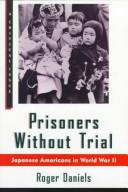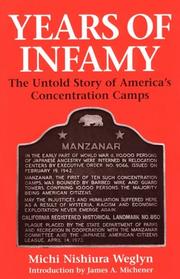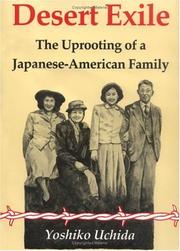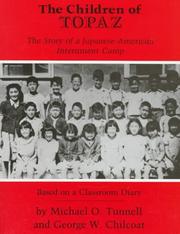Are you interested in learning about the human experience during times of internment? Look no further! We’ve compiled a list of the 20 best books about internment camps that delve into the emotional, historical, and political aspects of this challenging period. From personal memoirs to well-researched historical accounts, these books offer a comprehensive understanding of internment camps. Whether you’re a history buff, a social science enthusiast, or simply seeking powerful storytelling, there’s a book on internment camps for everyone on this list.
Contents
- 1 20 Best Books About Internment Camps
- 2 When the Emperor Was Divine
- 3 Farewell to Manzanar
- 4 The Buddha in the Attic
- 5 No-No Boy
- 6 Hotel on the Corner of Bitter and Sweet
- 7 Snow Falling on Cedars
- 8 Obasan
- 9 The Train to Crystal City
- 10 The Art of Gaman
- 11 The Invisible Thread
- 12 Impounded
- 13 The Relocation of Japanese Americans
- 14 Prisoners Without Trial
- 15 Years of Infamy
- 16 Desert Exile
- 17 Concentration Camps on the Home Front
- 18 The Children of Topaz
- 19 The Great Betrayal
- 20 Farewell to Manzanar
- 21 The Train to Crystal City: FDR’s Secret Prisoner Exchange Program and America’s Only Family Internment Camp During World War II
- 22 Conclusion
- 23
20 Best Books About Internment Camps
When the Emperor Was Divine
by Julie Otsuka
When the Emperor Was Divine by Julie Otsuka is a powerful and haunting book about the internment camps during World War II. Through lyrical prose, the author tells the story of a Japanese American family forced to leave their home and live in a camp. The novel follows the family’s experiences as they endure the harsh conditions of the camp, the loss of their freedom, and the challenges of being uprooted from their lives. Otsuka’s writing beautifully captures the emotional turmoil and resilience of the characters, offering a poignant and thought-provoking exploration of the impact of internment camps on individuals and families. This book about internment camps sheds light on a dark chapter of American history and serves as a reminder of the enduring strength of the human spirit.
Farewell to Manzanar
by Jeanne Wakatsuki Houston and James D. Houston
Farewell to Manzanar is a poignant memoir that provides a firsthand account of the Japanese American experience during World War II. Written by Jeanne Wakatsuki Houston and James D. Houston, this powerful book recounts the authors’ personal experiences living in internment camps after the Pearl Harbor attack. Through vivid storytelling, the book sheds light on the emotional and psychological impact of being unjustly detained and stripped of one’s rights. It explores themes of resilience, identity, and the struggle for justice in the face of adversity. Farewell to Manzanar offers a compelling and educational insight into a dark chapter of American history, making it a must-read for anyone interested in learning more about the internment camps’ history.
The Buddha in the Attic
by Julie Otsuka
The Buddha in the Attic by Julie Otsuka is a poignant and lyrical novel that tells the story of a group of Japanese picture brides who immigrate to America in the early 20th century. The book follows these women as they arrive in the United States, adapt to a new culture, and eventually face the harsh reality of being sent to confinement camps during World War II. Otsuka’s prose is beautifully crafted, using a collective first-person voice to capture the shared experiences of these women. The novel provides a unique and heart-wrenching perspective on the struggles and resilience of Japanese immigrants and their descendants. This book about internment camps sheds light on a dark chapter in American history and offers a powerful exploration of identity, community, and the human spirit.
No-No Boy
by John Okada
No-No Boy, a novel by John Okada, is a powerful and thought-provoking book about internment camps and the Japanese American experience during World War II. The story follows Ichiro Yamada, a young Japanese American who faces the difficult choice of whether to serve in the military or resist the draft due to his loyalty to his family and heritage. Set in the aftermath of the internment camps, the novel explores the challenges and discrimination faced by Japanese Americans as they try to rebuild their lives and find their place in a society that has turned against them. With compelling characters and emotional depth, No-No Boy offers a poignant and insightful portrayal of the lasting impact of internment camps on individuals and communities. It’s a must-read for anyone interested in understanding this dark chapter of American history.
Hotel on the Corner of Bitter and Sweet
by Jamie Ford
Hotel on the Corner of Bitter and Sweet is a poignant novel that delves into the lives of Japanese Americans during World War II. Set in Seattle, the story follows the unlikely friendship between a Chinese American boy, Henry, and a Japanese American girl, Keiko, as they navigate the complexities of racial prejudice and wartime internment. The novel beautifully captures the bittersweet moments of their relationship amidst the backdrop of fear and injustice. Jamie Ford’s evocative storytelling transports readers to a time when love and loyalty were tested against the backdrop of internment camps. This book about internment camps is a powerful exploration of identity, sacrifice, and the enduring power of love in the face of adversity.
Snow Falling on Cedars
by David Guterson
Snow Falling on Cedars by David Guterson is a captivating novel that delves into the aftermath of World War II and the impact of the Japanese internment camps on a small island community in the Pacific Northwest. The story unfolds as a murder trial brings to the surface long-held resentments and hidden secrets, while also exploring the complexities of love and the struggle for justice. With lyrical prose and vivid imagery, the author skillfully weaves together the lives of the characters, shedding light on the deep-seated prejudices and cultural tensions that arise in the wake of the war. This compelling narrative offers a thought-provoking exploration of human nature and the enduring effects of historical trauma, making it a must-read for anyone interested in a book about internment camps and the lasting repercussions of war.
Obasan
by Joy Kogawa
Obasan by Joy Kogawa is a powerful and heartbreaking novel that delves into the experiences of Japanese Canadians during and after World War II. Set in the 1940s, the book follows the protagonist, Naomi Nakane, as she navigates the trauma and loss caused by the internment of Japanese Canadians in Canada. Through Naomi’s perspective, the reader is given a glimpse into the harsh realities of discrimination, displacement, and the struggle for identity in the aftermath of the internment camps. Kogawa’s poignant and evocative writing captures the emotional and psychological turmoil of the characters, making this a compelling and thought-provoking read. Obasan is a poignant and vital book about internment camps that sheds light on a dark chapter in history and the resilience of the human spirit.
The Train to Crystal City
by Jan Jarboe Russell
The Train to Crystal City by Jan Jarboe Russell is a captivating and deeply moving book about internment camps during World War II. This poignant narrative sheds light on the little-known history of Crystal City, a secret internment camp in Texas where thousands of Japanese, German, and Italian immigrants and their American-born children were held during the war. Russell skillfully weaves together personal stories of families who endured the hardships and discrimination of internment, offering a powerful and heartbreaking portrayal of their experiences. Through meticulous research and compelling storytelling, the author brings to life the struggles and resilience of those who were unjustly imprisoned during a dark chapter of American history. The Train to Crystal City is a must-read for anyone interested in learning about this harrowing period and the human cost of war.
The Art of Gaman
by Delphine Hirasuna
The Art of Gaman by Delphine Hirasuna is a poignant and visually stunning book on internment camps. This powerful collection showcases the remarkable art and craftwork created by Japanese Americans during their internment in World War II. Through photographs and personal stories, Hirasuna sheds light on the resilience and creativity of those who were unjustly detained. The term “gaman” itself embodies the spirit of endurance and perseverance in the face of adversity. This book about internment camps serves as a testament to the human spirit and a tribute to the strength and ingenuity of the individuals who found solace in creativity during a dark period in American history.
The Invisible Thread
by Yoshiko Uchida
The Invisible Thread by Yoshiko Uchida is a captivating book on internment camps that takes readers on a poignant journey through a dark chapter in American history. Set during World War II, the story follows the experiences of a young Japanese-American girl, and her family as they are forced to leave their home and endure the hardships of internment. Uchida’s powerful storytelling and vivid descriptions provide a compelling portrayal of the emotional turmoil and resilience of those who were unjustly detained. Through the protagonist’s perspective, readers gain insight into the complexities of identity, loyalty, and the struggle for dignity in the face of prejudice and discrimination. The Invisible Thread is a moving and insightful book about internment camps that sheds light on a little-known aspect of wartime America.
Impounded
by Dorothea Lange and Linda Gordon
Impounded by Dorothea Lange and Linda Gordon is a powerful and evocative book about the internment camps that held Japanese American citizens during World War II. Through Lange’s haunting photographs and Gordon’s insightful commentary, the book provides a moving portrayal of the injustice and hardship faced by those imprisoned in the camps. The images capture the everyday lives of the detainees, offering a poignant glimpse into their struggles and resilience. This book offers a compelling and essential exploration of a dark chapter in American history, shedding light on the human impact of wartime policies. It is a must-read for anyone interested in learning about this period of injustice and the enduring strength of the individuals affected. Impounded is a stirring and essential contribution to the documentation of this tragic era.
The Relocation of Japanese Americans
by Roger Daniels
The Relocation of Japanese Americans by Roger Daniels is a comprehensive and insightful book on internment camps during World War II. Daniels delves into the troubling history of the forced relocation and incarceration of Japanese Americans, providing a detailed account of the political, social, and cultural factors that led to this dark chapter in American history. Through extensive research and compelling storytelling, Daniels sheds light on the experiences of the Japanese American community during this tumultuous time, offering a powerful and thought-provoking analysis of the internment camps. This book about internment camps is a must-read for anyone interested in understanding the impact of war on civil liberties and the resilience of the human spirit in the face of adversity.
Prisoners Without Trial
by Roger Daniels
Prisoners Without Trial by Roger Daniels is a compelling book about internment camps during World War II. This insightful and well-researched book sheds light on the dark chapter of American history when thousands of Japanese Americans were unjustly incarcerated in internment camps without due process. Daniels delves into the political and social climate of the time, examining the fear and prejudice that led to the mass incarceration of innocent individuals. Through detailed accounts and personal stories, the author brings to life the experiences of those who were stripped of their rights and freedom. Prisoners Without Trial is an eye-opening and thought-provoking book on internment camps that is essential reading for anyone interested in understanding the impact of war hysteria on civil liberties.
Years of Infamy
by Michi Weglyn
Years of Infamy by Michi Weglyn is a powerful and heart-wrenching book about the Japanese American experience during World War II. This compelling account provides an in-depth look at the internment camps, shedding light on the injustices and hardships faced by innocent citizens simply because of their heritage. Weglyn’s meticulous research and personal narrative bring to life the stories of those who endured the dehumanizing conditions of the camps, as well as the resilience and strength of the Japanese American community in the face of adversity. This book is a vital and eye-opening exploration of a dark chapter in American history, and a reminder of the importance of standing up against prejudice and discrimination. If you’re looking for a poignant and enlightening read, Years of Infamy is a must-read for anyone interested in learning about this often overlooked period of American history.
Desert Exile
by Yoshiko Uchida
Desert Exile by Yoshiko Uchida is a powerful memoir that provides a firsthand account of the author’s experience in internment camps during World War II. Uchida’s poignant narrative takes readers on a journey through the injustice and hardships faced by Japanese Americans during this dark period in history. Through her vivid storytelling, she captures the emotional turmoil, resilience, and hope that sustained her and her family as they navigated life in the internment camps. This compelling book sheds light on the human cost of war and the impact of discrimination on individuals and families. Uchida’s eloquent prose and personal reflections make Desert Exile a must-read for anyone seeking to understand the profound effects of internment camps on Japanese Americans and the resilience of the human spirit in the face of adversity.
Concentration Camps on the Home Front
by John Howard
Concentration Camps on the Home Front by John Howard is a gripping exploration of the little-known history of internment camps in America during World War II. This book delves into the experiences of Japanese Americans, German Americans, and Italian Americans who were forcibly relocated and detained in camps across the country. Howard uncovers the harsh realities of life in these camps, where families were torn apart and individuals endured harsh conditions. Through meticulous research and compelling storytelling, the author sheds light on this dark chapter of American history, offering a poignant and thought-provoking account of the impact of wartime hysteria and racism on innocent civilians. Concentration Camps on the Home Front is an essential read for anyone interested in understanding the complexities of this period and the resilience of those who endured it.
The Children of Topaz
by Michael O. Tunnell
The Children of Topaz by Michael O. Tunnell is a poignant and compelling book about internment camps during World War II. The novel follows the story of a young Japanese-American girl, Yuki, who is forced to leave her home and relocate to the Topaz internment camp in Utah. As Yuki and her family navigate the hardships and injustices of camp life, they struggle to maintain their dignity and sense of identity. Tunnell’s powerful storytelling sheds light on the experiences of Japanese-American families during this dark period in American history. The Children of Topaz is a moving and important read that offers a glimpse into the resilience and strength of those who endured the hardships of internment camps.
The Great Betrayal
by Audrie Girdner and Anne Loftis
The Great Betrayal by Audrie Girdner and Anne Loftis is a compelling book about internment camps during World War II. This powerful and eye-opening account delves into the shocking betrayal of Japanese Americans by the United States government. Girdner and Loftis meticulously detail the forced removal and incarceration of over 120,000 Japanese Americans, shedding light on the devastating impact of this dark chapter in American history. Through personal stories and historical evidence, the authors vividly depict the hardships and injustices endured by those who were unjustly imprisoned. The Great Betrayal is a poignant and thought-provoking exploration of the internment camps, offering a sobering reminder of the consequences of prejudice and fear. This book is a must-read for anyone seeking to understand the complexities of this troubling period in American history.
Farewell to Manzanar
by Jeanne Wakatsuki Houston
Farewell to Manzanar is a poignant memoir by Jeanne Wakatsuki Houston, detailing her experiences as a Japanese-American girl growing up in the wake of Pearl Harbor. This powerful book on internment camps captures the fears and injustices faced by Japanese-Americans during World War II, as they were forcibly removed from their homes and placed in internment camps. Through vivid and emotional storytelling, Houston vividly depicts the harsh living conditions, the loss of freedom, and the struggles of maintaining dignity in the face of adversity. Farewell to Manzanar is a compelling and eye-opening book about internment camps, shedding light on a dark period in American history and the resilience of the human spirit.
The Train to Crystal City: FDR’s Secret Prisoner Exchange Program and America’s Only Family Internment Camp During World War II
by Jan Jarboe Russell
The Train to Crystal City by Jan Jarboe Russell is a compelling and deeply researched book on internment camps. It sheds light on a little-known chapter of American history, focusing on the only family internment camp in the country during World War II. The book delves into the story of Crystal City, Texas, where thousands of Japanese, German, and Italian immigrants and their American-born children were held as part of FDR’s secret prisoner exchange program. Russell’s thorough investigation and powerful storytelling bring to life the experiences of the internees and their families, as well as the political and social context of the time. The Train to Crystal City is a must-read for anyone interested in learning about this dark period in American history and the impact of internment camps on individuals and families.
Conclusion
Exploring the harrowing experiences of individuals in Internment Camps, these 20 best books about internment camps offer powerful insights into a dark chapter of history. From personal accounts to fictionalized retellings, these books shed light on the resilience and suffering of those affected. Whether you’re seeking to understand this period in history or simply want to delve into compelling stories, these books are essential reads that will leave a lasting impact.
Which Internment Camps book is best?
The best book on Internment Camps can vary with personal preference, but three widely recommended titles are:
- When the Emperor Was Divine by Julie Otsuka,
- Farewell to Manzanar by Jeanne Wakatsuki Houston and James D. Houston,
- The Buddha in the Attic by Julie Otsuka.
Each offers valuable insights and could be a great starting point.
What are the best books to learn about Internment Camps?
For those looking to learn about Internment Camps, there is a wealth of literature that can provide a comprehensive understanding of the subject. Some of the most highly recommended books include:
- When the Emperor Was Divine by Julie Otsuka,
- Farewell to Manzanar by Jeanne Wakatsuki Houston and James D. Houston,
- The Buddha in the Attic by Julie Otsuka,
- No-No Boy by John Okada,
- Hotel on the Corner of Bitter and Sweet by Jamie Ford,
- Snow Falling on Cedars by David Guterson,
- Obasan by Joy Kogawa,
- The Train to Crystal City by Jan Jarboe Russell,
- The Art of Gaman by Delphine Hirasuna,
- The Invisible Thread by Yoshiko Uchida
These books offer a range of perspectives on Internment Camps, covering various aspects and approaches to the subject.
What are the best books on Internment Camps?
The best books on Internment Camps include:
- When the Emperor Was Divine by Julie Otsuka,
- Farewell to Manzanar by Jeanne Wakatsuki Houston and James D. Houston,
- Impounded by Dorothea Lange and Linda Gordon,
- The Relocation of Japanese Americans by Roger Daniels,
- The Train to Crystal City by Jan Jarboe Russell,
- Snow Falling on Cedars by David Guterson.
Each offers unique insights into the subject. While these books on the topic of Internment Camps are highly regarded, it’s important to note that any list of ‘best’ books is subjective and reflects a range of opinions.
What are the best Internment Camps books of all time?
Choosing the best Internment Camps books of all time can vary depending on who you ask, but seven titles that are often celebrated include
- When the Emperor Was Divine by Julie Otsuka,
- Farewell to Manzanar by Jeanne Wakatsuki Houston and James D. Houston,
- Hotel on the Corner of Bitter and Sweet by Jamie Ford,
- The Train to Crystal City by Jan Jarboe Russell,
- The Invisible Thread by Yoshiko Uchida,
- The Relocation of Japanese Americans by Roger Daniels,
- and Impounded by Dorothea Lange and Linda Gordon.
Each of these books has made a significant impact in the field of Internment Camps and continues to be influential today.

